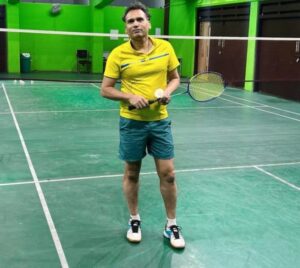Do you know that you can give yourself and those in need an elixir of life by pledging your organs? Organ shortage is an ethical, social, moral, and political problem that is causing unjustifiable damage to the society.
So, in this edition, we share some meaningful insights from the “Organ donation in India and Nurses as a change to lead in Organ Donation: Scooping Review of Organ Donation” study that highlights the current scenario of organ donation in India and how you can contribute your bit towards the same.
The study is conducted by Mahendra Kumar (Msc. Nursing (Critical Care), DCCN, Neurology Nursing Coordinator PGIMER, Chandigarh), Shelly Dhawan (Msc. Nursing, Clinical Instructor College of Nursing AIIMS, Patna), Aditi Chaudhary (Nursing Officer PGIMER, Chandigarh), Sachin Dwivedi (Clinical Instructor College of Nursing King George’s Medical University Lucknow), and Capt Anita Kumari (BSc.(N) Chandigarh).
An Insight into Organ Donation
Organ donation basically refers to the process of retrieving or procuring an organ from a live or deceased person and transplanting it into the recipient who requires that organ. Organ transplantation is one of the great headways in modern medical science and the most preferred treatment modality for end-stage organ disease and organ failures. Unfortunately, the need for organ donors is more conspicuous than the number of people who donate.
What are the different types of organ donors?
- Living Donors: Living organ donors are the people who can donate certain organs while they are still living. The majority of living donors are either family, close relatives, or friends who are willingly ready to donate an organ(s) to the person who is required for a transplant.
- Cadaveric Donors: Most of the donated organs and tissues are from people who have died. Cadaveric organs are the organs which are retrieved from brain dead declared deceased individuals and are transplanted into the body of a living recipient who requires it.
The deficiency of organ acquisition from a cadaveric donor is globally a matter of concern, especially in the developing countries. Surprisingly, nationally, with a population of over 1.2 billion people, the statistics stand at only 0.08 persons as organ donors per million populations in India. This is an incredibly small and insignificant number compared to the statistics around the world.
The Roadblocks
It has been seen that there is a low interest in organ donation among the public which shows the bitter unjustifiable truth that the society is denying another human’s chance to live. In contrast, the possible way out to fill the organ deficiency is more likely dependent on the change in the current social behavior and acceptance towards organ donation.
In India, the concept of life beyond demise is similarly connected with the theory of ancient ethics, belief, and spirituality. No religion in the world stops for organ donation but the people do. Standard guidelines to define brain death and law and criteria for organ donation are not similar worldwide, that contribute to a loss of potential donors. Another example of lack of knowledge and myth among the people makes it even more difficult to discuss openly regarding organ donation especially in the case of a brain-dead donor.
Creating Awareness As Ambassadors of Change
Proficiency among healthcare professionals about organ donation is of paramount importance for enhancing the awareness and encouragement of people for organ donation. Adequately educated nurses must be equipped with defined knowledge about organ donation and the transplantation process and commitment towards pledging for organ donation. This can act as a significant player to enhance the deceased donation program.
As an individual, you can contribute your bit to the society by pledging to donate your organs and creating awareness about the same.







Comments are closed.